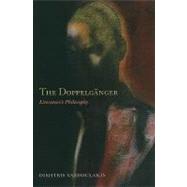
The Doppelganger Literature's Philosophy
by Vardoulakis, DimitrisBuy New
Rent Textbook
Rent Digital
Used Textbook
We're Sorry
Sold Out
Summary
Author Biography
Table of Contents
| Preface | p. ix |
| Preamble, or an Other Opening | p. xi |
| Introduction, or The Reflections of the Doppelgänger | p. 1 |
| The Critique of Loneliness: The Genesis of the Doppelgänger | p. 11 |
| Isolation: Toward a Political Placement of the Doppelgänger | p. 11 |
| Harrington's ôFliesö: Kant's Madness | p. 16 |
| The Black Nothing and the White Nothing: Jean Paul's | p. 23 |
| The Return of Negation: Freud's ôThe 'Uncanny'ö | p. 37 |
| ôDouble Actsö and Transformation | p. 53 |
| The Subject of Modernity: Law and Temporality in Alexandros Papadiamantes | p. 66 |
| …and …: The Doppelgänger as the Subject of Modernity | p. 66 |
| Community with the Dead: Self-Confession in The Murderess | p. 75 |
| The Penumbra: Obligations | p. 90 |
| The Task of the Doppelgänger: Jean Paul as Collocutor of Maurice Blanchot | p. 106 |
| The Politics of the Doppelgänger: Universal History and Cosmopolitanism | p. 135 |
| Automatism, Autonomy | p. 135 |
| The Subject of History in Walter Benjamin | p. 144 |
| Displacement: Figuring the Cosmopolitan in Alasdair Gray's: Poor Things | p. 165 |
| Self-Inscriptions: Failing Kafka and Benjamin | p. 192 |
| The Pure Machine's Gambit: Benjamin's ôThesis Iö | p. 192 |
| World Theater and Nature Theater | p. 202 |
| Kafka's ôLost Gestureö | p. 218 |
| Lying with Benjamin | p. 232 |
| Notes | p. 249 |
| Bibligraphy | p. 307 |
| Index | p. 325 |
| Table of Contents provided by Ingram. All Rights Reserved. |
An electronic version of this book is available through VitalSource.
This book is viewable on PC, Mac, iPhone, iPad, iPod Touch, and most smartphones.
By purchasing, you will be able to view this book online, as well as download it, for the chosen number of days.
Digital License
You are licensing a digital product for a set duration. Durations are set forth in the product description, with "Lifetime" typically meaning five (5) years of online access and permanent download to a supported device. All licenses are non-transferable.
More details can be found here.
A downloadable version of this book is available through the eCampus Reader or compatible Adobe readers.
Applications are available on iOS, Android, PC, Mac, and Windows Mobile platforms.
Please view the compatibility matrix prior to purchase.
